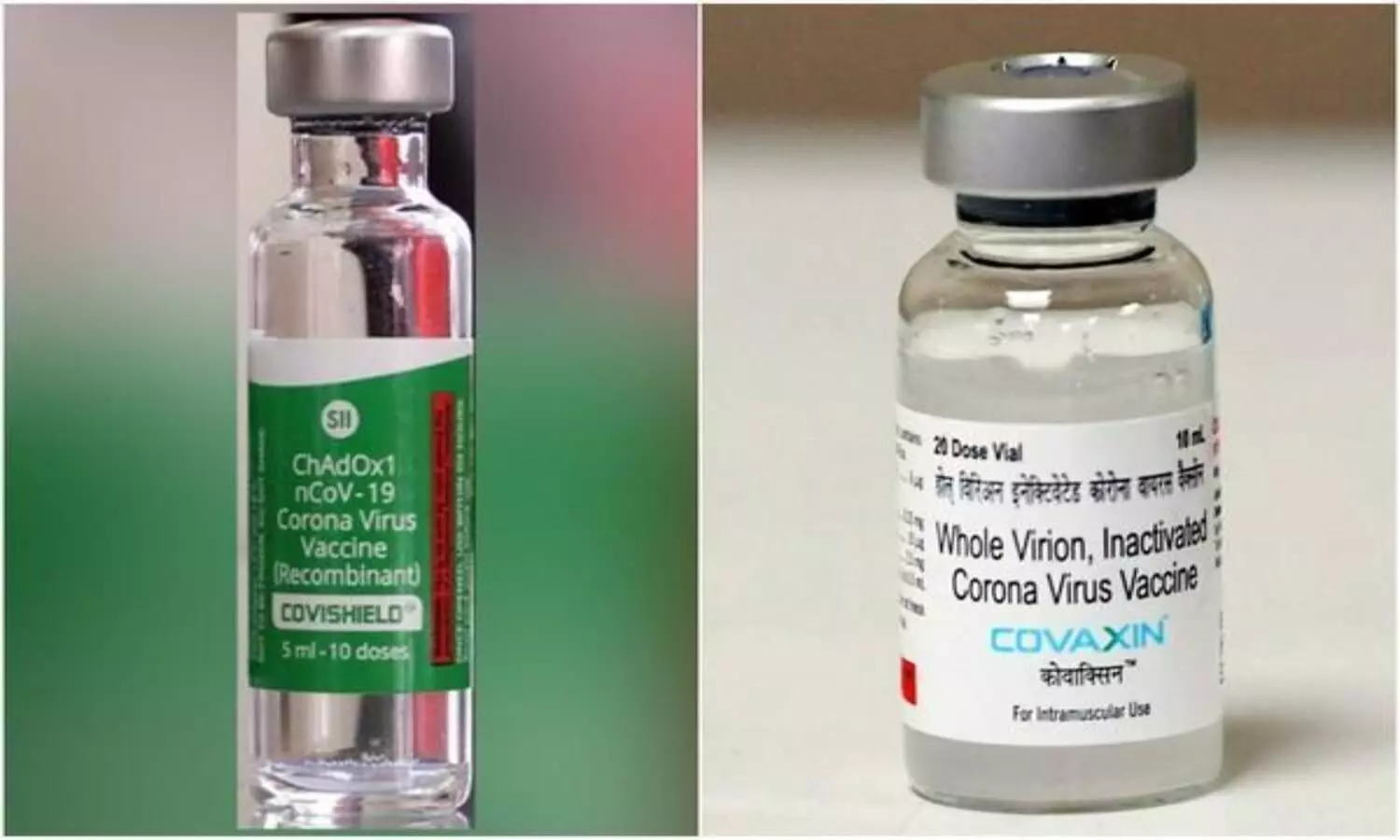Mixing Covishield, Covaxin yield better results: ICMR study
An Indian Council of Medical Research (ICMR) study has revealed that mixing Covishield and Covaxin, the two main vaccines of India's COVID-19 vaccination programme, can actually yield better results.
By Sumit Jha
Hyderabad: An Indian Council of Medical Research (ICMR) study has revealed that mixing Covishield and Covaxin, the two main vaccines of India's COVID-19 vaccination programme, can actually yield better results.
The study titled "Serendipitous COVID-19 Vaccine-Mix in Uttar Pradesh, India: Safety and Immunogenicity Assessment of a Heterologous Regime" published in medRxiv revealed that the humoral immune response in the heterologous group in the study (IgG titers for S1-RBD, N protein and inactivated SARS-CoV-2 antigen) was significantly higher in comparison to the homologous groups (both doses Covishield vaccinated or both doses Covaxin vaccinated groups). Similar findings have been reported by other studies of heterologous vaccines carried out recently.
The study was carried after an incident where a group of individuals in Uttar Pradesh received Covishield as the first dose followed by the inadvertent administration of Covaxin as the second dose at an interval of six weeks. The nationwide vaccination program at this time had entered the fourth month and the incident had raised considerable anxiety among the public, contributing to vaccine hesitancy.
The study presents data on reactogenicity and immunogenicity in individuals who received the heterologous (Covishield+Covaxin) vaccine. A total of 18 participants were in the heterologous group. Among them, 11 were male with a median age of 62 years. A comorbid condition (hypertension) was reported in one (5.5%) individual.
The frequency of pyrexia was reported in the heterologous group after the first dose (27.77%) and second dose (11.1%), malaise was reported in the first dose (33.3%), second dose(5.5%). The frequency of AEFI in the heterologous group was similar to the participants of the Covishield/Covaxin groups establishing the safety of heterologous vaccination.
Earlier studies have reported that reactogenicity and immunogenicity of mixed vaccination regimens and the heterologous vaccination regimens elicit better antibody responses post-vaccination with good NAb titres after heterologous prime-boost compared to the homologous vaccination.
The researchers, however, said that there are a few limitations in the study. "The sample size of 18 participants is small. The follow-up period is only 60-70 days after immunization with the first dose and baseline serological and immunological data of the participants is not available," said the researchers.
However, there are several major strengths in this study. This is the first report of heterologous immunization with an adenovirus vector based and an inactivated whole virion vaccine in humans demonstrating safety and significantly improved immunogenicity.